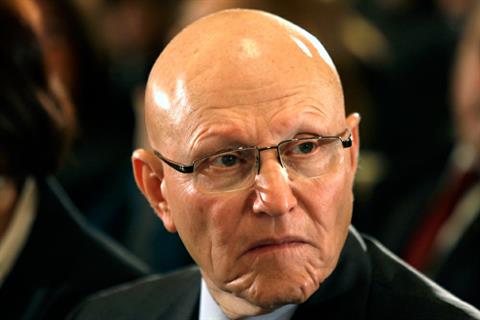Regional and International Powers push for inter-Lebanese talks as Iran deal looms
Nov. 03, 2014
Antoine Ghattas Saab/The Daily Star
Western diplomatic sources have told The Daily Star that serious attempts were being made by regional and international powers to launch an inter-Lebanese dialogue in parallel to the ongoing U.S.-Iranian talks over the Islamic Republic’s nuclear program. A preliminary deal is likely to be signed between the nations before the end of November under which the U.S. Congress would gradually lift sanctions imposed on Iran. The Islamic Republic will also be allowed to export oil in order to compensate for the losses inflicted on its economy due to the sanctions. In the meantime, talks will continue in a bid to reach a final deal between the U.S. and Iran. The sources said that international activity was accompanying the American-Iranian negotiations. They noted that Saudi Foreign Minister Prince Saud al-Faisal had met Russian officials, and that talks between Russian and U.S. officials have also taken place in an attempt to advocate a political solution to Syria’s crisis mirroring that proposed during the Geneva I conference in 2012. According to the proposal, the powers of the Syrian president would be referred to a transitional governing body under American, Russian, Saudi, Iranian and Egyptian sponsorship. The sources also revealed that Syrian Foreign Minister Walid al-Moallem would soon visit Moscow in order to follow up on the U.S.-Russian talks. Maj. Gen. Ali Mamlouk, the director of Syria’s National Security Office, is expected to visit Egypt to determine whether Cairo could propose ideas to solve Syria’s crisis.
The sources said countries taking part in the anti-ISIS international coalition and those involved in the region were not opposed to political solutions to regional conflicts. This is because the military option, adopted by both the Syrian regime and opposition, has proved a failure and led to rising extremism that could only be addressed by boosting moderate Islam. The sources said that during their meeting in Berlin last week on the sidelines of an international conference on Syrian refugees, German Chancellor Angela Merkel and Prime Minister Tammam Salam discussed rising extremism in the region.
Salam stressed during the meeting that fighting terrorism and enhancing moderation could only happen by first coming up with a just solution to the Palestinian cause, adding that solutions to other regional conflicts should come after that.
On the local level, there are efforts to capitalize on this international support for compromises in the region through reviving dialogue between the Future Movement and Hezbollah. These talks would be held with the aim of reaching a settlement similar to the deal rival Lebanese political groups struck in Doha in May 2008. Under the sought arrangement, a new president would finally be elected and Parliament would endorse an election law providing fair representation for all political groups, after which parliamentary polls would be held.
This would be followed by a series of civil service appointments which would contribute to reviving state institutions. Sources familiar with these efforts said that the threat of sectarian strife had reached Lebanon, pointing to the recent clashes in the north and Arsal.
Fearing this rising danger, political factions are considering a return to moderate stances. A number of Future Movement officials have traveled to Paris in recent days to discuss a number of issues with Former Prime Minister Saad Hariri, including the group’s stance during Wednesday’s Parliament session, which would debate a draft law to extend the legislature’s term.
he Future Movement delegation is expected to return to Lebanon within 48 hours. Sources told The Daily Star that during his meeting with French President Francois Hollande last month, Hariri requested that the French leader convince Iran to facilitate the election of a Lebanese president. For this purpose, Hollande decided to dispatch Jean-Francois Girault, the head of the MENA Department at the French Foreign Ministry, to Tehran to discuss with Iranian officials bilateral ties, Iran’s nuclear program and other issues in the Middle East, including the situation in Lebanon.















